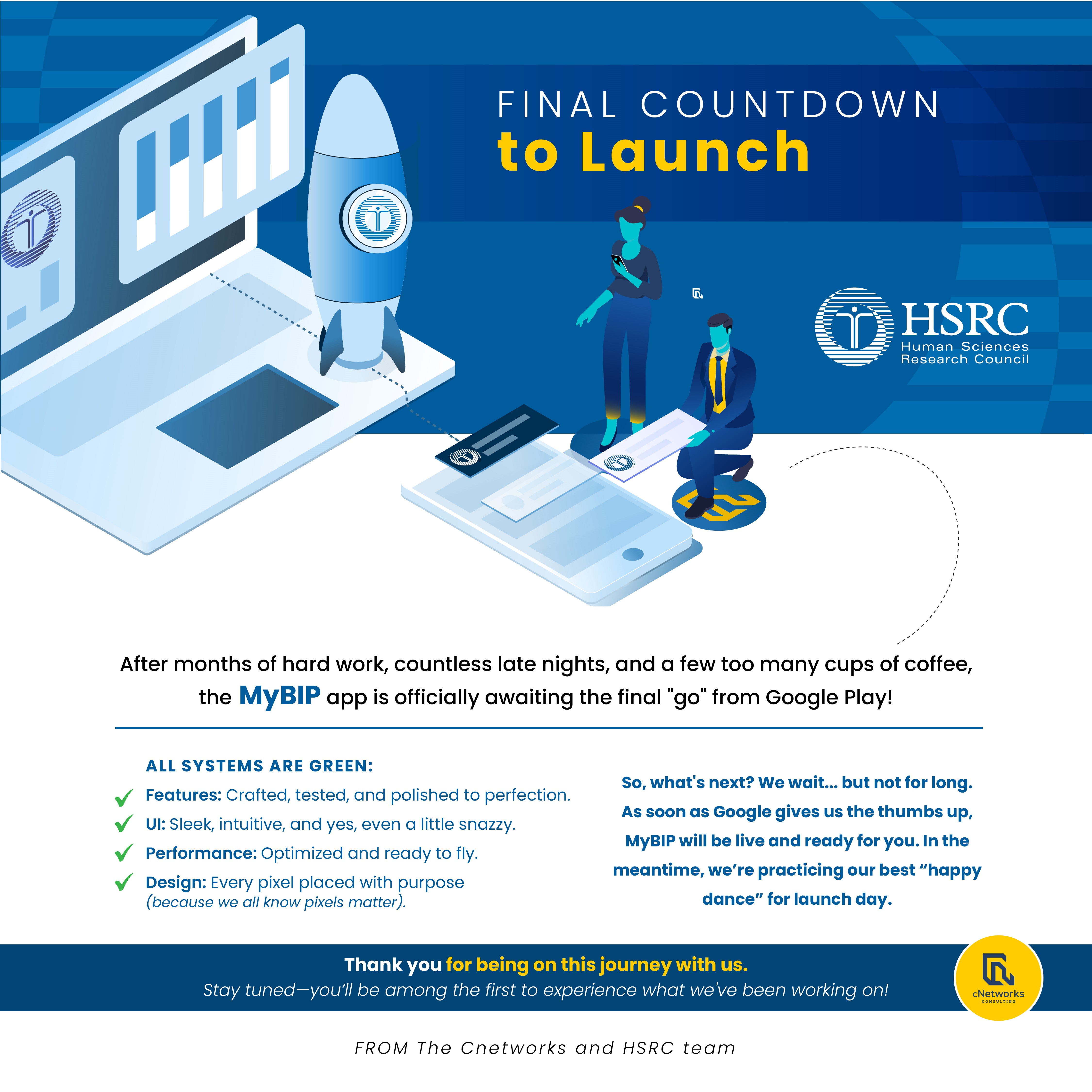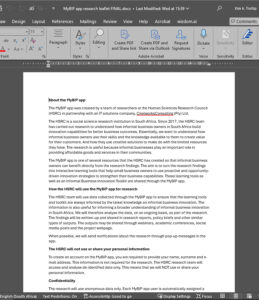The MyBIP app is one of several resources that the HSRC has created so that informal business owners can benefit directly from the research findings. The aim is to turn the research findings into interactive learning tools that help small business owners to use proactive and opportunity-driven innovation strategies to strengthen their business capabilities. These learning tools as well as an Informal Business Innovation Toolkit are shared through the MyBIP app.

How the HSRC will use the MyBIP app for research
The HSRC team will use data collected through the MyBIP app to ensure that the learning tools and toolkit are always informed by the latest knowledge on informal business innovation. The information is also useful for informing a broader understanding of informal business innovation in South Africa. We will therefore analyse the data, on an ongoing basis, as part of the research. The findings will be written-up and shared in research reports, policy briefs and other similar types of outputs. The outputs may be shared through webinars, academic conferences, social media posts and the project webpage.
When possible, we will send notifications about the research through pop-up messages in the app.


Business Evolution Maturity Pocketbook
Promotional material
Who to contact if you have any feedback and suggestions
Your feedback to improve the MyBIP app is invaluable. Please send your suggestions and feedback to the project lead, Dr Il-haam Petersen, at mybip@hsrc.ac.za; call this number, +27 (0)21 466 7952 or WhatsApp on +27 (0)63 027 5422.
About the MyBIP app
The MyBIP app was created by a team of researchers at the Human Sciences Research Council (HSRC) in partnership with an IT solutions company, CnetworksConsulting (Pty) Ltd.
The HSRC is a social science research institution in South Africa. Since 2017, the HSRC team has carried out research to understand how informal business owners in South Africa build innovation capabilities for better business outcomes. Essentially, we want to understand how informal business owners use their skills and the knowledge available to them to create value for their customers. And how they use creative solutions to make do with the limited resources they have. The research is useful because informal businesses play an important role in providing affordable goods and services in their communities.


